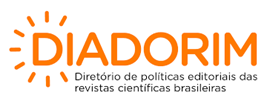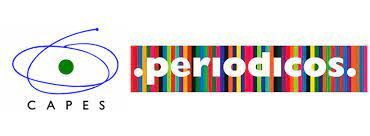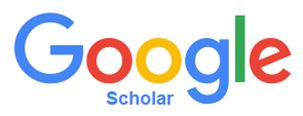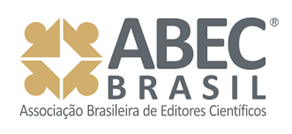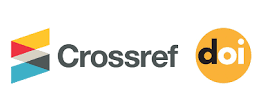NAVIGATING THROUGH KNOWLEDGE - THE IMPACT OF THE INTERNET ON SCHOOL ACTIVITIES
DOI:
https://doi.org/10.22407/2176-1477/2024.v15.2455Keywords:
internet, activity theory, students, trends, contemporary digital technologiesAbstract
This study aims to analyze the use of the Internet by urban school students in 2019 (before the pandemic) and to answer the "What was the purpose of the use of the Internet in school activities by urban school students in 2019 (before the pandemic)?" focusing on data from the survey carried out by Cetic.br in 2019. In addition, we explore the contribution of Vygotsky, Leontiev and Engestrom's Activity Theory to understanding the learning process of students who use mediating technologies. Several trends stand out, such as educational games, research, and online group work. The research also shows low scientific dissemination on the internet, as well as low communication between teachers and students. The results highlight the internet's significant mediating role in primary school students learning in the northern region of Brazil. It also highlights the importance of integrating digital literacy into the school curriculum to prepare students for the constantly evolving digital world. The research also highlights the need to overcome socio-economic barriers and promote internet access as a fundamental right. The results confirm the internet's mediating potential in primary school students learning in northern Brazil.
References
ALAVA, Séraphin. Uma abordagem pedagógica e midiática do ciberespaço. Pátio Revista Pedagógica, Porto Alegre, v. 26 de maio/jul. 2003.
ALMEIDA, P. de. Tecnologias digitais em sala de aula: o professor e a reconfiguração do processo educativo. Revista Da Investigação às Práticas: Estudos de Natureza Educacional [S. l.], v. 8, n. 1, p. 4–21, 2018. DOI: 10.25757/invep.v8i1.124. Disponível em: https://ojs.eselx.ipl.pt/index.php/invep/article/view/124. Acesso em: 31 jul. 2023
BATES, AW Tony. Educar na era digital: design, ensino e aprendizagem. 1.ed. São Paulo: Artesanato Educacional, 2017.
BONILLA, Maria Helena Silveira. Software Livre e Educação: uma relação em construção. Perspectiva, Florianópolis, v. 1, pág. 205-234, 2014. DOI: 10.5007/2175-795X.2014v32n1p205. Disponível em: https://periodicos.ufsc.br/index.php/perspectiva/article/view/2175-795X.2014v32n1p205. Acesso em: 26 jul. 2023.
BRASIL. Constituição (1988). Constituição da República Federativa do Brasil. Brasília, DF: Senado Federal, 1988. Disponível em: http://www.planalto.gov.br/ccivil_03/constituicao/constituicao.htm. Acesso em 23 jul. 2023.
BRASIL. Ministério da Educação. Base nacional comum curricular: educação é a base. Brasília: MEC, 2017a. Disponível em: http://basenacionalcomum.mec.gov.br/abase/. Acesso em: 28 jul. 2023.
BRASIL. Ministério da Educação. Lei nº 9394/96, de 20 de dezembro de 1996. Diário Oficial da União, Brasília, DF, 23 dez. 1996.
BRASIL. Instituto Nacional de Estudos e Pesquisas Educacionais Anísio Teixeira. Plano Nacional de Educação PNE 2014-2024: Linha de Base. – Brasília, DF : Inep, 2015. 404 p. Disponível em: Plano Nacional de Educação (PNE) 2014-2024 – Linha de Base. Acesso em: 27 jul. 2023.
BRASIL. Lei nº 14.533, de 11 de janeiro de 2023. Institui a Política Nacional de Educação Digital e altera as Leis nºs 9.394, de 20 de dezembro de 1996 (Lei de Diretrizes e Bases da Educação Nacional), 9.448, de 14 de março de 1997, 10.260, de 12 de julho de 2001, e 10.753, de 30 de outubro de 2003. Brasília, DF: Presidência da República, 2023. Disponível em: https://www.planalto.gov.br/ccivil_03/_Ato2023-2026/2023/Lei/L14533.htm. Acesso em: 31 jul. 2023.
BUZATO, Marcelo El Khouri. Letramentos digitais e formação de professores. São Paulo: Portal Educarede, 2006. Disponivel em: http://www.unilago.com.br/arquivosdst/24983MarceloBuzato%20-%20letramento%20digital%20e%20formacao%20de%20profs%20@.pdf. Acesso em 30 jul. 2023.
CARIBO, O; SCREMIN, R. Ferramentas do Google como alternativa pedagógica para facilitar a aprendizagem em grupo. Revista Científica FESA, [S. l.], v. 18, p. 65–78, 2022. DOI: 10.56069/2676-0428.2022.192. Disponível em: https://revistafesa.com/index.php/fesa/article/view/192. Acesso em: 31 jul. 2023.
ENGESTRÖM, Y. Aprendizagem expansiva. Tradução Fernanda Liberali. 2. ed. Campinas, SP: Pontes, 2016.
LEFFA, Vilson J. Aprendizagem mediada por computador à luz da Teoria da Atividade. Calidoscópio [online], v. 1, p. 21-30, 2005. Disponível em: https://www.redalyc.org/articulo.oa?id=571561917004. Acesso em: 28 jul. 2023.
LEMOS, Mônica; PEREIRA-QUEROL, Marco Antonio; ALMEIDA, Ildeberto Muniz de. A teoria da atividade histórico-cultural e suas contribuições à educação, saúde e comunicação: entrevista com Yrjö Engeström. Interface-Comunicação, Saúde, Educação, Botucatu, v. 46, p. 715-727, 2013. Disponível em: https://www.scielo.br/j/icse/a/BTX7QK5SkLGDpWw6jBzgDsK/. Acesso em: 27 jul. 2023.
LEVY, Pierre. Cibercultura. Rio de Janeiro: Editora 34, 1999.
LIMA JR, Arnaud Soares; PRETTO, Nelson De Luca. Desafios para o currículo a partir das tecnologias contemporâneas. In: PRETTO, Nelson De Luca (Org.). Tecnologias e novas educações. EDUFBA, p. 203-214, 2005. Disponível em: https://www.scielo.br/j/rbedu/a/4vpwVbvgbkFRLRq4BPqzFHf/abstract/?lang=pt. Acesso em 26 jul. 2023.
MEDEIROS, SM de A. A teoria da atividade em Vygotsky, Leontiev e Engeström: os fundamentos da aprendizagem expansiva. Revista HISTEDBR On-line, Campinas, SP, v. 00, p. e021051, 2021. Disponível em: https://periodicos.sbu.unicamp.br/ojs/index.php/histedbr/article/view/8657702. Acesso em: 31 jul. 2023.
MORAN, J. Metodologias ativas para uma aprendizagem mais profunda. In: BACICH, L.; MORAN, J. Metodologias ativas para uma educação inovadora: uma abordagem teórico-prática. Porto Alegre: Penso, 2018.
PRIETO, L. M.; TREVISAN, M. do C. B.; DANEZI, M. I.; FALKEMBACH, G. M. Uso Das Tecnologias Digitais Em Atividades Didáticas Nas Séries Iniciais. Revista Novas Tecnologias na Educação, Porto Alegre, v. 3, n. 1, 2005. DOI: 10.22456/1679-1916.13934. Disponível em https://seer.ufrgs.br/index.php/renote/article/view/13934. Acesso em: 26 jul. 2023.
PRETTO, Nelson de Luca; BONILLA, Maria Helena Silveira. Tecnologias e educação: um caminho em aberto. Políticas educacioanis: em Aberto, v. 35, n. 113, p. 141-163, 2022. Disponível em: https://rbep.inep.gov.br/ojs3/index.php/emaberto/article/view/5085/4128. Acesso em: 27 jul. 2023.
SAVI, R.; ULBRICHT, VR JOGOS DIGITAIS EDUCACIONAIS: BENEFÍCIOS E DESAFIOS. Revista Novas Tecnologias na Educação, Porto Alegre, v. 1, 2008. Doi: 10.22456/1679-1916.14405. Disponível em: https://seer.ufrgs.br/index.php/renote/article/view/14405 . Acesso em: 13 jul. 2023.
SAVIANI, Dermeval. Sistema Nacional de Educação articulado ao Plano Nacional de Educação. Revista Brasileira de Educação [online], v. 15, n. 44, p. 380-392, 2010. Acesso em: 28 jul. 2023. ISSN: 1809-449X. Disponível em: https://doi.org/10.1590/S1413-24782010000200013. Acesso em: 23 jul. 2023.
SCHERER, Suely; BRITO, Gláucia da Silva. Integração de tecnologias digitais ao currículo: diálogos sobre desafios e dificuldades. Educar em Revista [online], v. 36, 2020. Acesso em: 31 jul. 2023. e76252. Disponível em: https://doi.org/10.1590/0104-4060.76252. Acesso em: 30 jul. 2023.
SOUSA, Luciana Pereira de. Atividade Docente: uma Análise Micro das Tensões nas Atividades de Aprendizagens das Professoras de Matemática nos anos inciais do Ensino Fundamental. Encontro Brasileiro de Estudantes de Pós-Graduação em Educação Matemática, 21, Pelotas, RS. Anais do 21º Encontro Brasileiro de Estudantes de Pós-Graduação em Educação Matemática, 2017. Disponível em: https://wp.ufpel.edu.br/xxiebrapem/anais-xxi-ebrapem-2/. Acesso em: 18 jul. 2023.
TORMÖHLEN, S. Gehlen; MATTOS, Cristiano. Freire e Leontiev: contribuições para o ensino de ciências. Revista de investigación y experiencias didácticas, n. Extra, p. 438-441, 2009. Disponível em: https://raco.cat/index.php/Ensenanza/article/view/293494. Acesso em: 25 jul. 2023.
Downloads
Published
How to Cite
Issue
Section
License
Copyright (c) 2024 Luisa Silva de Matos, José Lauro Martins, Wegle Borges Amorim

This work is licensed under a Creative Commons Attribution-NonCommercial 4.0 International License.
O autor responsável pela submissão representa todos os autores do artigo, e se compromete a enviar como documento suplementar uma carta de consentimento com a assinatura de todos os autores informando que tem a permissão para a submissão do texto assim como assegura que não há violação de direitos autorais e nem qualquer tipo de plágio (incluindo autoplágio).



